Women in politics: Lack of diversity 'a massive step back' for Wales
- Published
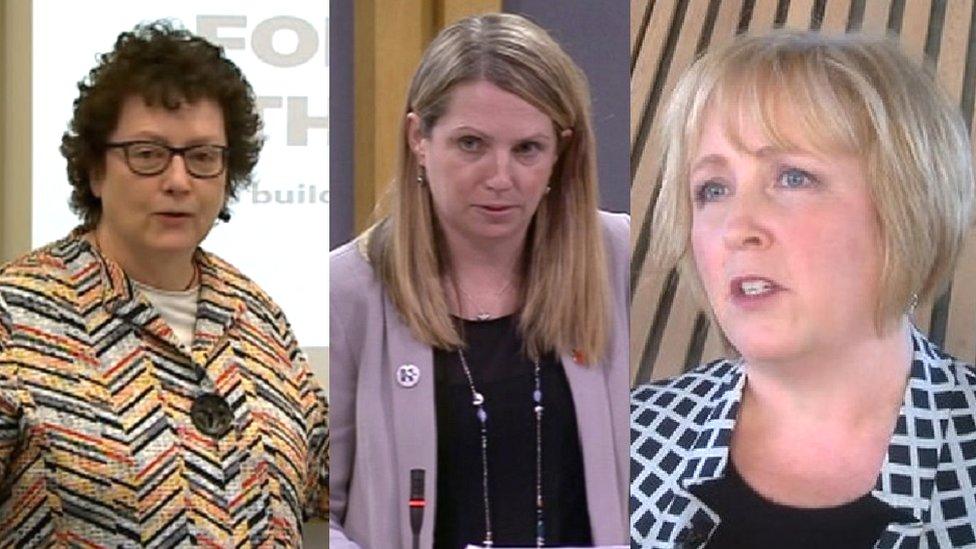
Elin Jones, Hannah Blythyn and Suzy Davies have worked to help boost female participation in politics.
A lack of female candidates in winnable seats for the Welsh Parliament is a "worrying step backwards" for equality, a charity has warned.
Wales became the first country in the world in 2003 to have an equal number of men and women in parliament.
However, polls suggest just 34% of female candidates for May's Senedd election are in "winnable" seats.
Gender equality charity Chwarae Teg said the next Welsh Parliament was likely to be less diverse.
After the 2016 election, 42% of the Welsh Parliament, as it is now known, were women.
But that has risen to more than 48% after Delyth Jewell, Mandy Jones, Laura Anne-Jones, and Helen Mary-Jones were sworn in - with the current Senedd gender split 29 women to 31 men.
Ahead of May's upcoming Senedd elections, 50% of Labour candidates are women, compared to 41% for Plaid Cymru, 34% for Conservatives and 29% for Liberal Democrats.
However, according to projections made by political consultancy Deryn, based on recent polling data and a 10% margin, the number of women in winnable seats is much lower.
Hannah Blythyn says she is proud to be one of the first openly gay assembly members
Polling suggests that of the 29 women standing for Labour, 16 are in seats classed as winnable.
Meanwhile, nine of the 19 female Plaid candidates, and three of the 16 women standing for the Conservatives are in seats considered as winnable.
Polling suggests the Liberal Democrats have no women in seats thought to be winnable - of the 11 standing.
A number of key female figures in Welsh politics are due to stand down at May's election, including the only current Welsh Liberal Democrat MS Kirsty Williams, the education secretary.
Chwarae Teg chief executive Cerys Furlong said some of the parties had become complacent, while others had taken no action to improve representation.
"It is incredibly disappointing that the next Senedd is likely to be taking a very serious and worrying step backwards," she said.
Former MS Nerys Evans, now director at Deryn, said having an equal parliament helped to change the kind of policies and laws passed.
"Because of that increased representation we have seen ground breaking legislation and policy being passed in terms of caring, mental health and domestic abuse," she said.
"These things just wouldn't have had the priority and the dominance without women's voices in the Senedd and in the Welsh Government making the case."
'Disappointing'
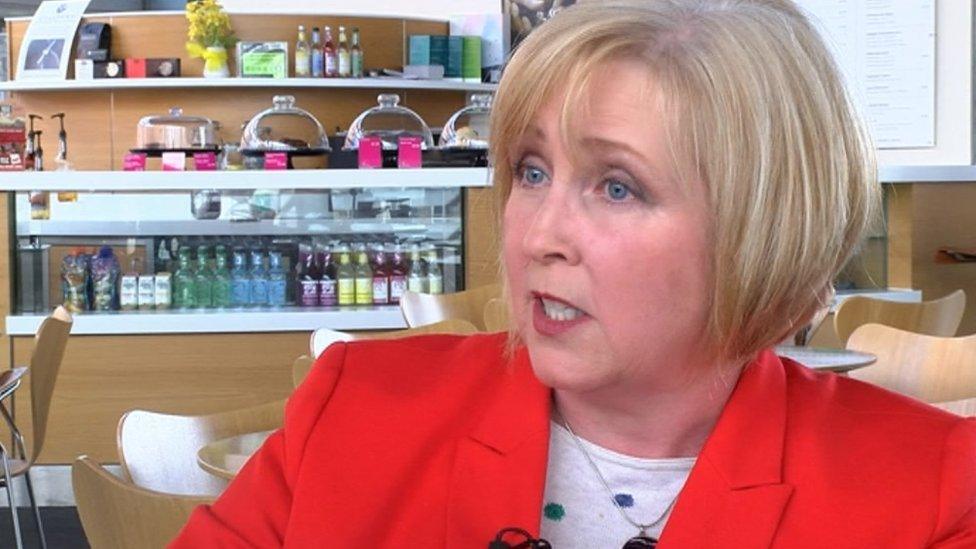
Suzy Davies, member of the Senedd since 2011, has lost her easiest way of being re-elected to the Welsh Parliament
Conservative MS Suzy Davies said she was disappointed new women coming into politics were not being given as much of a chance as men.
Ms Davies, who ran against Paul Davies to lead the Tories in Cardiff Bay in 2018, faces losing her seat after young male candidates were chosen to top the party's names on the regional list.
"It's very hard when you have a very localised system to ask a local association to make a strategic decision for a party," she said.
"I do recognise that, but that's something that the hierarchy of the party can do to help local associations understand better."
Ms Davies, who is the director of Women 2 Win, a campaign to encourage more women to stand for the Welsh Conservatives, said she was disappointed so few women were in winnable seats.
"I would have loved to have seen that and I look again to our processes to ask why that's been so difficult when actually we have new men coming through and they're getting more viable seats," she said.
'Jobshares needed'
Bethan Sayed said the 24/7 culture of her job made it "impossible" to raise her new family
Plaid Cymru's Bethan Sayed, who is due to step down at the May elections to spend more time with her family, said more needed to be done to support women entering politics.
She said: "We live in an unequal society. If women weren't in so many caring roles, if women weren't on so many zero hours contracts, if they weren't suffering maternity discrimination I would say, yes, let's have meritocracy.
"Until we get to a system where we all equal, we will need things like quotas and we will need measures like jobshares."
You can see more on this story on on Politics Wales on BBC One Wales on Sunday at 10:00 GMT or catch up again on iPlayer.
- Published4 September 2020
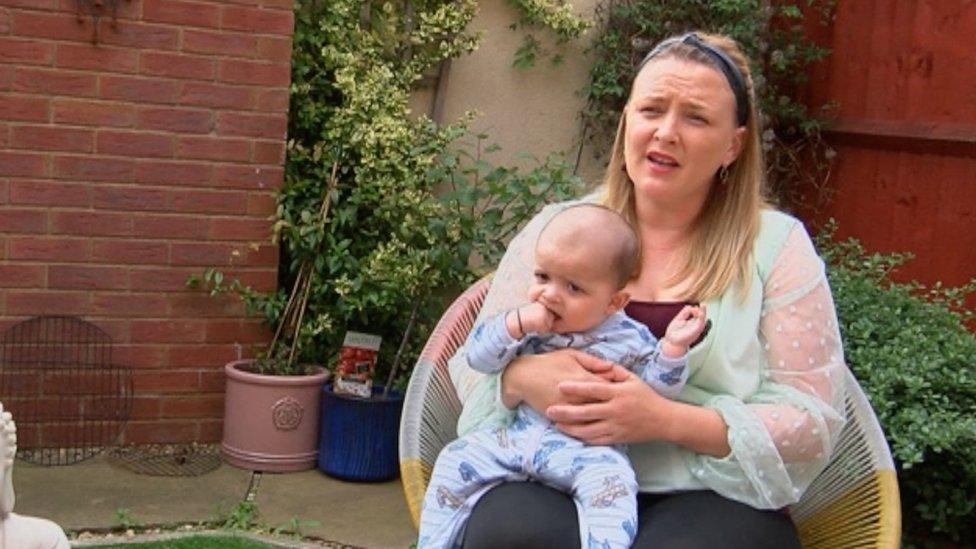
- Published29 January 2021
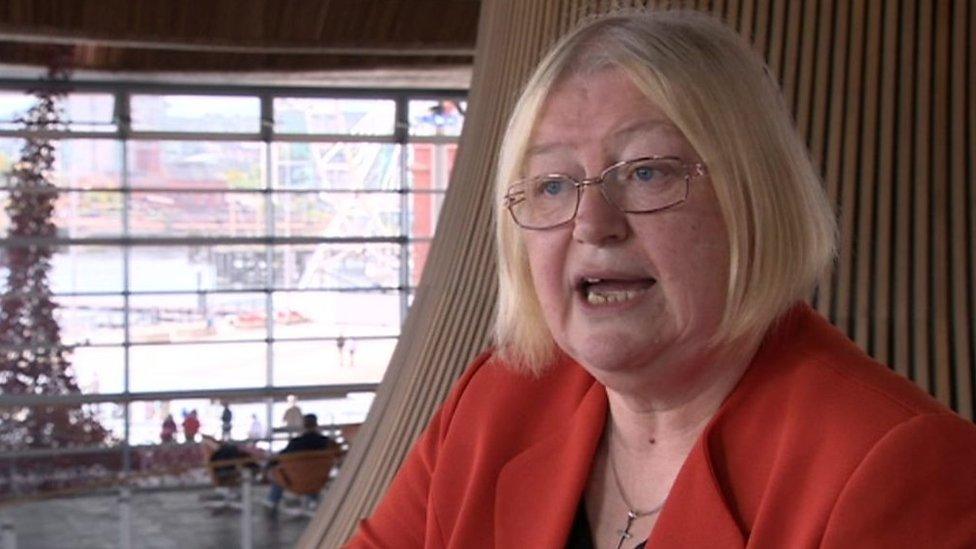
- Published17 February 2021
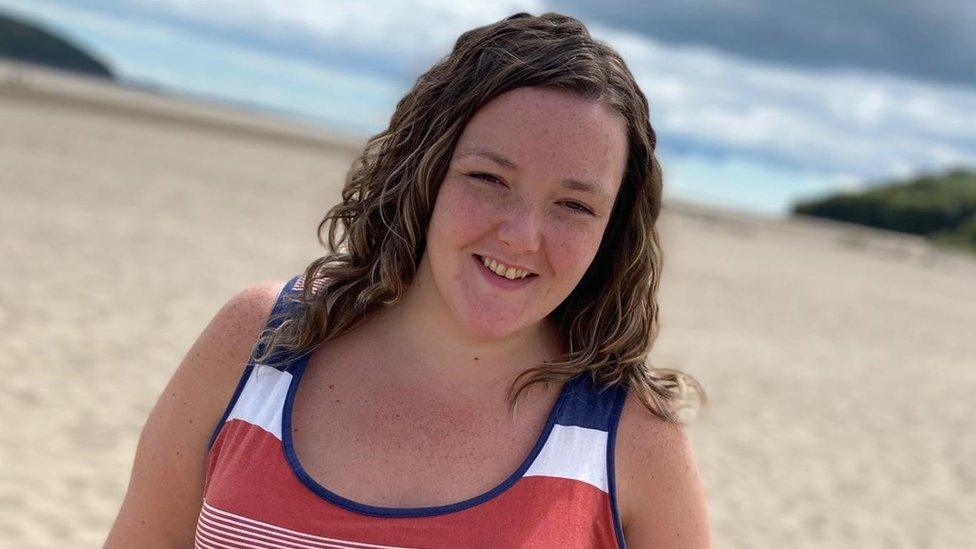
- Published23 August 2019
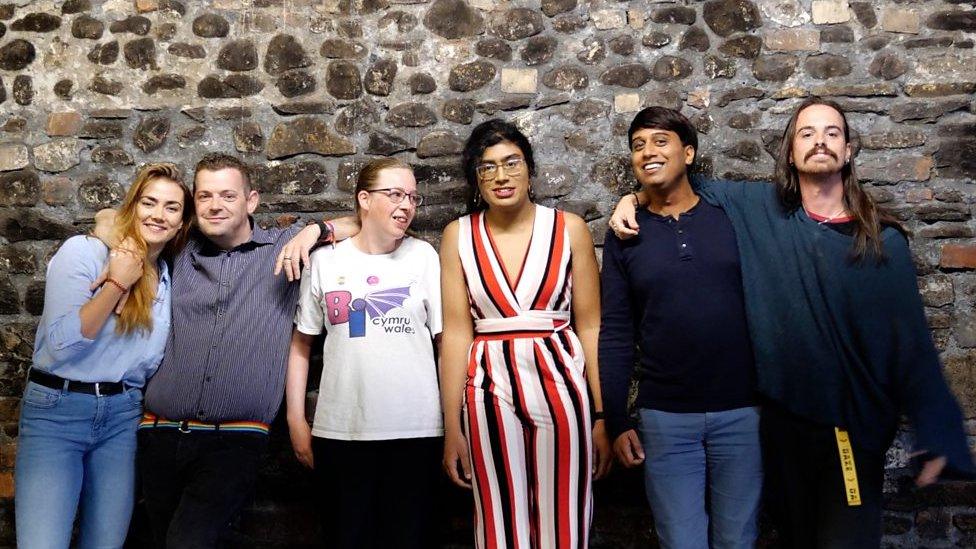
- Published4 January 2018
